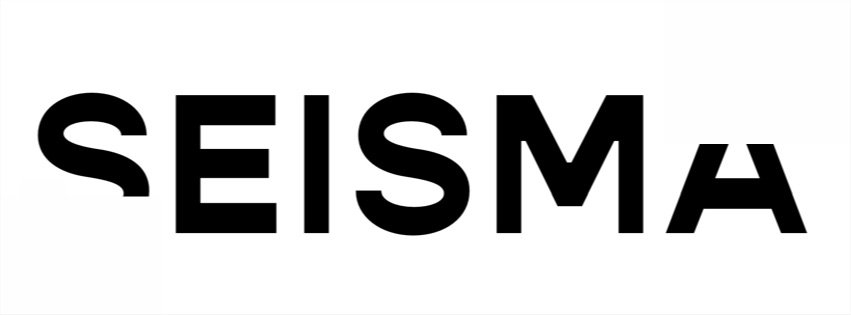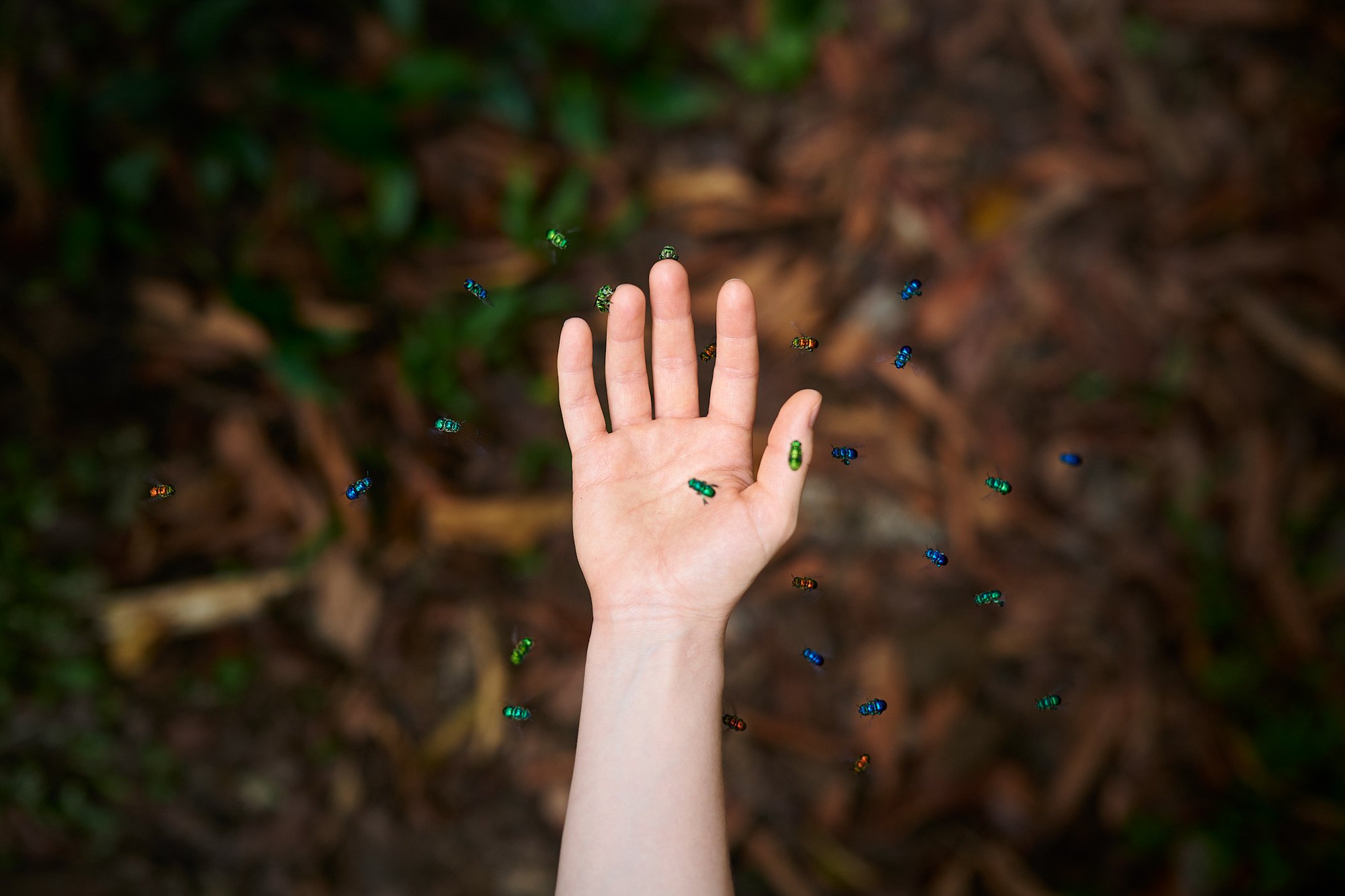JAKE ESHELMAN
CREATIVE STATEMENT
An Offering: As part of a pollinator population field study, a researcher attracts orchid bees (Euglossini) to her wrist using a custom fragrance comprised of essential oils derived from local, fragrant plants. These bees are aesthetically and conceptually fascinating because they—like us—adorn their body with scent to attract mates. Furthermore, each individual insect concocts its own signature scent. For researchers, this behavior enables deep insights into the local rainforest ecology. Using these scent-based population studies, entomologists, botanists, and ecologists can study the distribution of pollinators—and their plant partner species—throughout the rainforest.
To help imagine new ways to address our unfolding ecological crises, my ongoing visual research (‘Telling of the Bees’) is an exploration of the complex ethical and ecological relationships between people and bees. More specifically, this evolving body of work considers the opportunities and implications of these myriad interspecies interactions as they manifest across industry, agriculture, scientific research, environmental conservation, human healthcare, bioengineering, and spirituality. The works included in this submission specifically consider the beauty, violence, and ethics of entomological research:
Jake Eshelman (b. 1989, USA) is a photo-based artist and visual researcher exploring the complex relationships between people and other-than-human beings. Working to transcend the notion that humanity is somehow separate from—or superior to—the natural world, his work creates opportunities in which to (re)consider our ecological kinships. Through an intimate and intuitive documentary practice, his recent projects investigate how interspecies interactions in agriculture, conservation, and spirituality can illuminate new ways to address anthropocentrism, human chauvinism, and the unfolding implications behind the Enlightenment rationalization of nature.
Eshelman has exhibited work internationally, most notably at Vantaa Art Museum Artsi in Helsinki, Finland; Contemporary Calgary in Alberta, Canada; Houston Center for Photography in Houston, TX; The Centre for Research in the Arts, Social Sciences and Humanities at Cambridge University, UK; Rhode Island School of Design, RI; The Morgan Conservatory in Cleveland, OH; The Corcoran School of the Arts and Design in Washington D.C.; Open Eye Gallery in Liverpool, UK. His work is in the permanent collection of the Chicago Design Museum and has also been included in independently published photo books, collaborative artist books, and even a children’s book by Simon & Schuster encouraging aspiring creatives to pursue artistic careers. He has also been featured in numerous publications including National Geographic, Texas Monthly, The World Sensorium / Conservancy, Trouvé Magazine, and Then There Was Us, among others. He is a recent recipient of the City’s Initiative Grant administered by Houston Arts Alliance, as well as the Idea Fund individual artist grant funded by The Andy Warhol Foundation for the Visual Arts and administered by DiverseWorks, Aurora Picture Show, and Project Row Houses.
Complementing his creative practice, Jake is also a writer and emerging scholar. In addition to his forthcoming publications through the Sophia Centre Press and the University of Reading, Jake also serves as the Contributing Editor of Ecological Thinking with Plantings Journal. Beyond the written word, he thoroughly enjoys conversing and lecturing about the issues he explores in his work, as well as the value and validity of artistic research practices.
Jake is currently pursuing his MA in Ecology & Spirituality from The University of Wales, Trinity Saint David. He holds a BA in Classical Literature, with a concentration in mythology, hermeneutics, and reception theory from Trinity University in San Antonio, TX, as well a minor in Studio Art and Art History. Jake is also a member of The Fairy Investigation Society.
Words and images shown courtesy the artist ©️ Jake Eshelman. All rights reserved.

